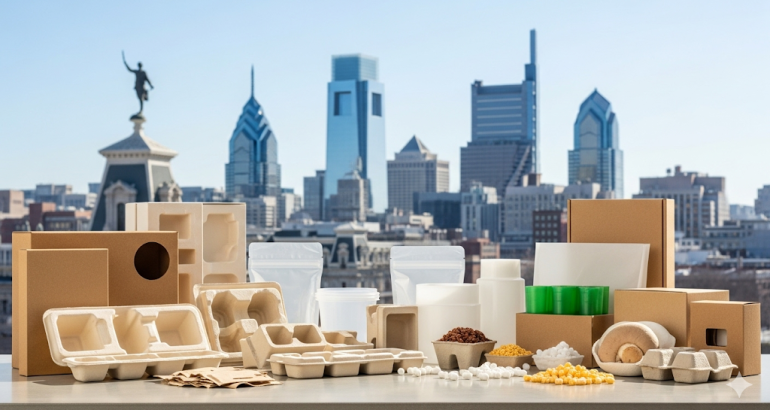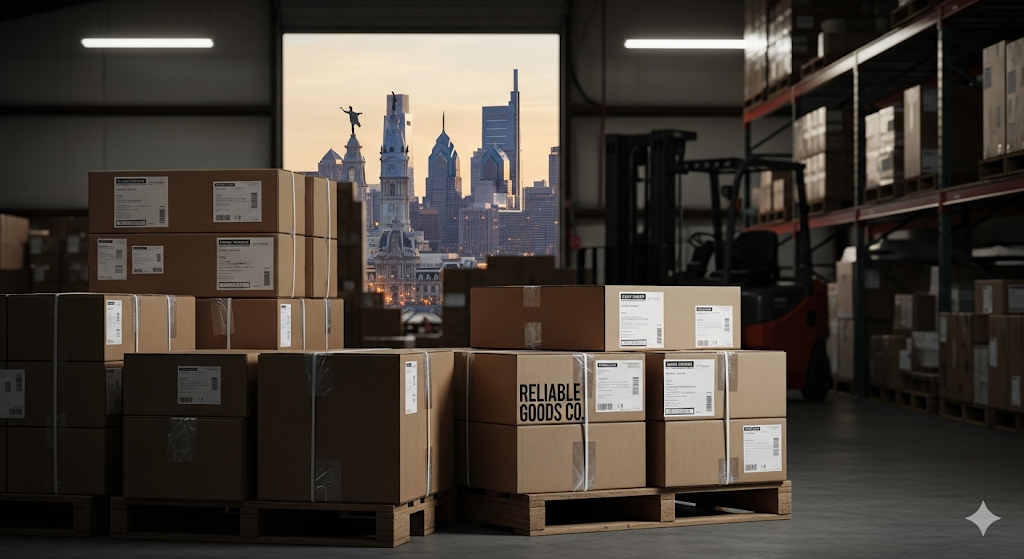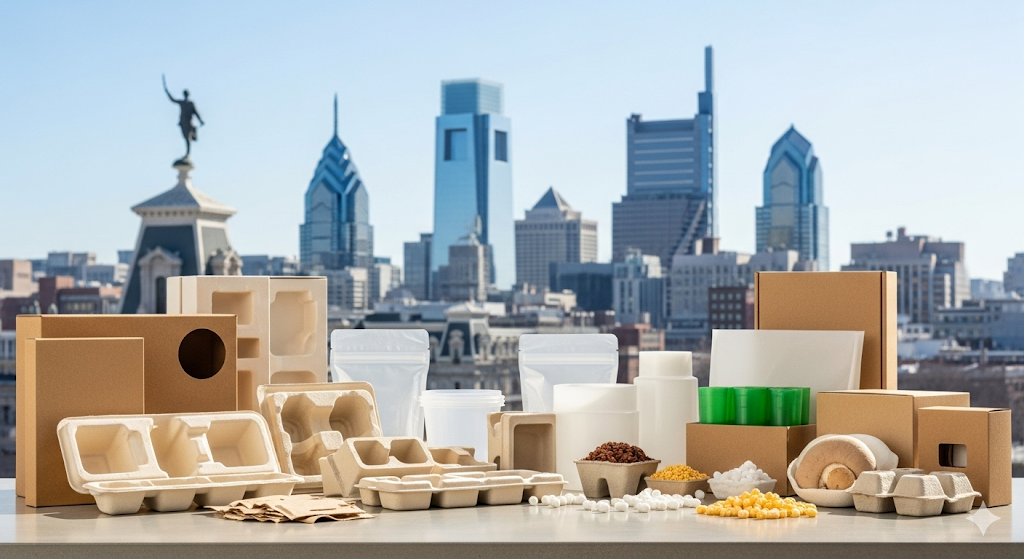The demand for eco-friendly product packaging in Philadelphia has surged as businesses embrace sustainability and the circular economy. Consumers prioritize brands that minimize their carbon footprint and plastic waste, making environmental stewardship central to packaging decisions. Philadelphia’s robust network of packaging suppliers now offers an array of biodegradable packaging, compostable materials, and post-consumer recycled content. Companies seeking to balance brand image with environmental responsibility turn to local experts who understand regional recycling streams, municipal composting, and industry certifications. Amid this landscape, Product Packaging in Philadelphia remains pivotal for businesses aiming to reduce landfill waste while maintaining high-quality design and functionality.
Where Can Businesses Source Product Packaging in Philadelphia that Is Eco-Friendly?
Product Packaging in Philadelphia providers now cater to the rising need for sustainable packaging solutions without compromising on aesthetics or performance. From kraft paper mailers to compostable bioplastic pouches, local suppliers combine state-of-the-art printing with green materials. They guide clients through certifications such as FSC, ASTM D6400, and BPI, ensuring compliance with consumer expectations and municipal regulations. Collaboration with designers and material scientists allows brands to develop custom packaging that reflects their sustainability goals. The result is packaging that safeguards products, communicates core values, and fosters a positive environmental impact.
What Makes Sustainable Packaging Philadelphia a Smart Business Choice?
Sustainable packaging Philadelphia fosters brand loyalty and opens doors to eco-conscious markets. By integrating renewable resources—like bamboo fibers and cornstarch-based bioplastics—companies can showcase commitment to conservation. Efficient supply chain management reduces transport emissions, while lightweight designs decrease material usage and shipping costs. Businesses often benefit from tax incentives and grants offered by Philadelphia’s Office of Sustainability. Moreover, transparent supply chains reassure stakeholders that packaging decisions align with broader corporate social responsibility goals, enhancing reputational capital in competitive sectors.
Why Consider Biodegradable Packaging for Local Products?
Biodegradable packaging breaks down into natural components when composted, eliminating persistent waste and mitigating landfill growth. In Philadelphia, curbside composting programs accept certified compostable containers made from PLA, bagasse, and cellulose films. These materials support the zero-waste initiative championed by local municipalities and NGOs. Brands that adopt biodegradable packaging can secure partnerships with eco-friendly retailers and restaurants committed to reducing single-use plastics. By choosing materials that safely return to the environment, companies reinforce their green credentials and contribute to healthier urban ecosystems.
Eco-Friendly Packaging Materials and Key Characteristics
| Material | Description | Compostable | Recyclable | Typical Uses |
| Kraft Paper | Strong, renewable paper from wood pulp | No | Yes | Boxes, mailers |
| PLA (Polylactic Acid) | Bioplastic derived from cornstarch | Yes | No | Clear bags, cups |
| Bagasse | Sugarcane fiber byproduct | Yes | No | Food trays, clamshells |
| Post-Consumer PET | Recycled polyethylene terephthalate | No | Yes | Bottles, clamshells |
| Cellulose Film | Plant-based film with paper-like clarity | Yes | No | Pouches, windows |
How to Evaluate Recyclable Packaging Materials in Philadelphia?
Recyclable packaging materials should align with local recycling capabilities to ensure they truly re-enter the material stream. Philadelphia’s Department of Streets outlines that materials coded #1 PET, #2 HDPE, aluminum, and corrugated cardboard are widely accepted. Companies must avoid multi-layer laminates that cannot be separated during standard processing. Engaging with a Materials Recovery Facility (MRF) tour offers insights into acceptable items. Brands can incorporate clear recycling icons and disposal instructions to empower consumers, increasing diversion rates and reducing contamination in recycling bins.
Who Are the Leading Providers of Eco-Friendly Packaging in Philadelphia?
Philadelphia hosts a thriving ecosystem of eco-packaging specialists ranging from boutique design studios to large-scale manufacturers. Key players include PulpWorks, offering molded fiber solutions; EcoCentric Packaging, specializing in recycled mailers; and local print houses integrating soy-based inks with reclaimed paper stocks. These providers deliver end-to-end services, covering material sourcing, structural design, packaging project management, and fulfillment logistics. Businesses benefit from streamlined processes, consistency, and a single point of contact for sustainability-driven packaging needs.
Leading Philadelphia Eco-Friendly Packaging Providers
| Company | Location | Services | Specialty |
| PulpWorks | Kensington | Molded fiber; compostable clamshells | Foodservice packaging |
| EcoCentric Packaging | South Philadelphia | Recycled mailers; padded envelopes | E-commerce mail solutions |
| GreenPrint Studios | Fishtown | Soy-based inks; reclaimed paper products | Custom printed corrugated boxes |
| PhillyPack Solutions | Center City | Project management; design & logistics | End-to-end packaging solutions |
| BiopaQ Technologies | University City | Bioplastic films; compostable labels | Clear compostable pouches |
How Does Packaging Project Management Enhance Sustainability Efforts?
Efficient Packaging Project Management Solutions synchronize material procurement, design iterations, production scheduling, and quality assurance. By leveraging project management methodologies such as Agile and Lean, teams can minimize waste and optimize resource allocation. Providers assign dedicated coordinators to oversee compliance with environmental certifications, budget tracking, and deadline adherence. This integration ensures that every packaging component—from dieline specifications to finishing processes like embossing or aqueous coatings—reflects the brand’s sustainability objectives and operational efficiencies.
What Role Does Custom Design Play in Green Packaging?
Customized eco-friendly packaging aligns with brand narratives while optimizing material usage and structural integrity. Designers use CAD tools and sustainability scorecards to compare material alternatives, ensuring the chosen substrate meets performance standards for drop tests, moisture resistance, or barrier properties. Incorporating minimalist design reduces ink coverage and energy consumption during printing. Brands can choose water-based or UV-curable inks and natural adhesives certified for compostability. Tailored solutions not only protect products but also streamline end-of-life disposal and reinforce storytelling around environmental commitments.
How to Balance Cost and Sustainability in Packaging Choices?
While eco-friendly packaging may carry slightly higher upfront costs, total cost of ownership often decreases over time through reduced waste disposal fees and enhanced brand loyalty. Businesses should conduct a lifecycle cost analysis, considering factors such as material acquisition, transportation emissions, manufacturing energy, and end-of-life processing. Collaborative forecasting helps suppliers adjust production runs, minimizing overstock and mitigating algorithmic waste. Incentives like bulk discounts on recycled content and local sourcing reduce transportation expenses. Ultimately, strategic investments in sustainable packaging yield dividends in customer retention and operational resilience.
What Certifications Should Companies Look for in Eco-Friendly Packaging?
Certifications validate environmental credentials and facilitate transparent communication to stakeholders. Key standards include:
- FSC (Forest Stewardship Council): Ensures responsible sourcing of paper-based materials.
- ASTM D6400 & D6868: Define criteria for compostability in commercial facilities.
- BPI (Biodegradable Products Institute): Verifies that materials meet composting performance standards.
- UL ECOLOGO: Assesses environmental impact across a product’s lifecycle.
- ISO 14001: Establishes frameworks for environmental management systems.
Partnering with certified suppliers and conducting third-party audits ensures adherence to evolving regulations and consumer expectations.
How Can Companies Implement Zero-Waste Packaging Programs in Philadelphia?
Adopting zero-waste packaging involves designing systems that prioritize reuse, refill, and resource recovery. Brands can introduce reusable mailers eligible for return via prepaid shipping labels, incorporating QR codes for track-and-trace. Local partnerships with refill stations allow consumers to recharge personal containers for bulk products. Implementing closed-loop programs with manufacturers recovers packaging polymers for internal reuse. Education campaigns guide customers on reusing or composting materials, improving end-of-life diversion rates within Philadelphia’s residential and commercial sectors.
Comparative Lifecycle Assessment of Common Eco-Friendly Materials
| Material | Production Energy | End-of-Life Outcome | Carbon Footprint Impact |
| Recycled Cardboard | Low | High Recycling Rate | Reduced by 40% vs. virgin |
| PLA Bioplastic | Moderate | Industrial Compost | Neutral to slightly positive |
| Molded Pulp (Bagasse) | Low | Industrial Compost | Reduced by 60% vs. plastic |
| Post-Consumer PET | High | High Recycling Rate | Reduced by 50% vs. virgin |
| Cellulose Film | Moderate | Commercial Compost | Lower than conventional film |
Where Do Bulk Buyers Source Recyclable Packaging Materials?
Wholesale distributors in Philadelphia maintain inventory of corrugated boxes, recycled paperboard, and mono-material pouches ready for pickup or drop shipping. These suppliers forge relationships with mills and reclaimers to secure competitive pricing on post-consumer recycled resins. E-commerce companies leverage fulfillment centers that are pre-staged with sustainable packaging inventories to expedite order turnaround. Businesses can join buying cooperatives to amplify purchasing power and unlock preferential rates on large orders, driving both cost savings and consistency in material performance.
How Do Municipal Programs Support Eco-Friendly Packaging Adoption?
Philadelphia’s PILOT programs and grants incentivize small businesses to adopt greener packaging by offsetting the costs of compostable materials and recycling infrastructure. The city’s Office of Sustainability offers technical assistance for waste audits, helping companies identify packaging hotspots and optimize waste streams. Collaboration with institutions like Drexel University fosters pilot projects in sustainable packaging innovation and materials testing. Additionally, the Philadelphia Recycling Program provides guidelines and resources for labeling, ensuring that consumers and employees can easily identify proper disposal methods.
At the heart of every green packaging initiative lie clear communication and streamlined workflows. Embedding QR codes on packaging directs consumers to online portals detailing carbon footprint data, disposal instructions, and upcycling project ideas. Seasonal campaigns can highlight packaging return events or incentivize customers with loyalty points for participating in closed-loop programs. By transforming packaging into an educational touchpoint, brands deepen engagement and drive meaningful behavior change. These strategies amplify sustainability efforts beyond product delivery, fostering community-driven environmental stewardship.
Sourcing and scaling Product Packaging Solutions that align with regulatory standards, consumer expectations, and corporate sustainability goals requires expertise and agility. Integrating digital supply chain platforms enhances visibility into raw material origins, production schedules, and transportation emissions. Real-time analytics support demand forecasting, reducing overproduction and raw material waste. These insights enable packaging teams to pivot quickly toward emerging eco-certifications or material innovations. In this way, businesses remain competitive while advancing their environmental commitments through data-driven decisions.
Conclusion
Businesses seeking eco-friendly product packaging in Philadelphia have access to a broad spectrum of sustainable, biodegradable, and recyclable packaging materials supported by local expertise and municipal programs. By prioritizing certifications, lifecycle assessments, and collaborative design, brands can reduce their environmental footprint and resonate with eco-conscious consumers. Whether through molded fiber trays, compostable films, or recycled mailers, the city’s suppliers offer solutions that balance functionality, aesthetics, and green credentials. For tailored, end-to-end green packaging strategies, companies can rely on V T Graphics to deliver comprehensive, sustainable design, sourcing, and project management services in Philadelphia. Product Packaging in Philadelphia has never been more innovative or essential to sustainable brand success.
Frequently Asked Questions
What types of eco-friendly packaging materials are available in Philadelphia?
Philadelphia suppliers offer a variety of eco-friendly materials, including recycled corrugated board, kraft paper, PLA bioplastics, bagasse molded pulp, cellulose film, and post-consumer PET. Each material aligns with specific disposal streams—curbside recycling or industrial composting—and meets certifications like FSC, ASTM D6400, or BPI.
Are eco-friendly packaging options more expensive in Philadelphia?
While some sustainable materials carry a slight premium, long-term savings often result from reduced disposal fees, lower waste volumes, and improved brand loyalty. Bulk purchasing agreements and local sourcing further decrease costs. Philadelphia’s grant programs can also offset initial investment for compostable or recycled materials.
Where can small businesses find biodegradable packaging in Philly?
Small businesses can procure biodegradable packaging through local distributors such as PulpWorks, EcoCentric Packaging, and BiopaQ Technologies. Community workshops and cooperative buying groups facilitate access to compostable containers, certified films, and plant-based labels at competitive rates.
How do I ensure the packaging I choose is certified sustainable?
Verify supplier certifications—FSC for paper-based substrates, BPI for industrial compostability, and UL ECOLOGO for lifecycle impact. Request third-party audit reports and material safety data sheets. Engaging in a Materials Recovery Facility tour can confirm compatibility with municipal recycling or composting streams.
Can I customize eco-friendly packaging in Philadelphia?
Yes. Many local packaging partners provide Packaging Project Management Solutions and in-house design services to develop bespoke, eco-conscious packaging. From structural prototyping with CAD to digital proofing and sustainable finishing options, brands can achieve tailor-made packaging that meets performance and branding requirements.



